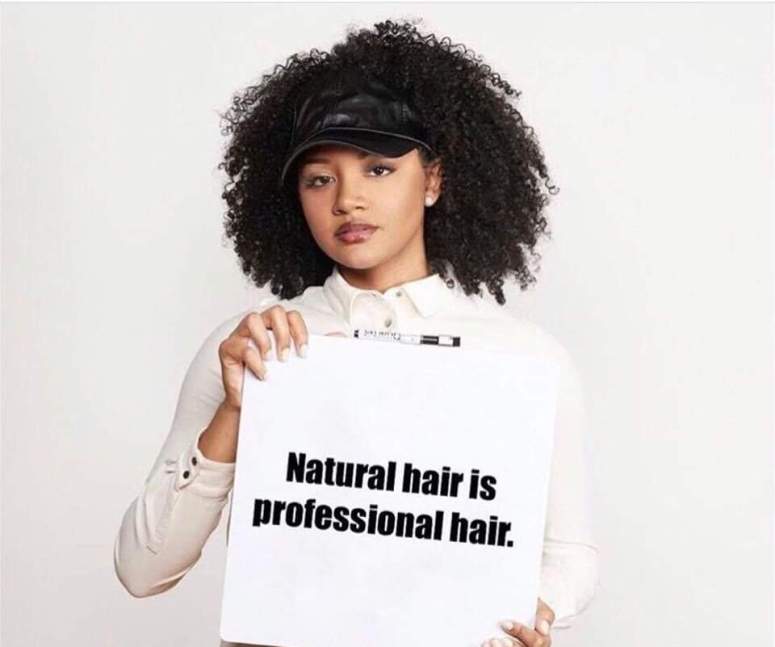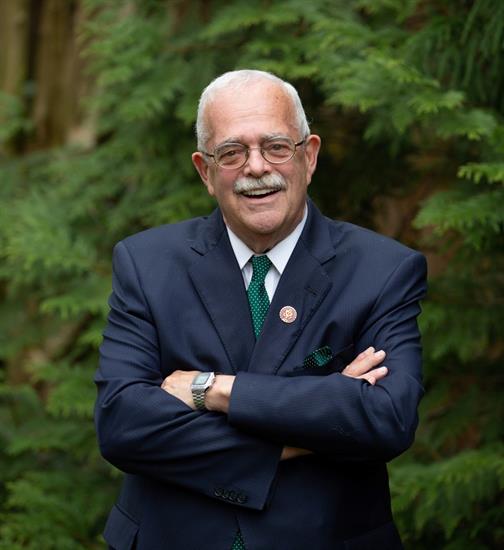Tell Us: Are Black Women with Natural Hair Perceived Differently at Work?
This week’s Tell Us Tuesday focuses on hair discrimination, specifically against Black women who chose to wear natural or protective hair styles such as locs, braids, or twists.
The immergence of natural hair styles isn’t a new phenomenon, but the power behind the natural hair movement is kicking up momentum. It’s not simply about making a statement; it promotes equal treatment, personal choice, and works to redefine beauty standards.
How Did We Get Here?
Unfortunately anti-black hair perspectives have existed for centuries. Enslaved women in the fields often covered their hair in rags due to harsh working conditions, but slave women who worked in the houses mimicked the style of their slave owners or wore wigs. In New Orleans, free Creole women wore elaborate hairstyles proudly displaying their kinks and coils until the Tignon Laws that required these women to wear tignon (head scarves) over their hair to signify that they were members of the slave class, regardless of their enslaved status.
The first wave of the natural hair movement came in the 1960s with the “black is beautiful” movement.
Civil rights activist, Angela Davis wore an afro as a sign of black power and rebellion against white American beauty standards. The afro became a symbolic weapon in the fight for racial equality, as well as a public display of self-love and solidarity.
Though afros were technically allowed in the workplace by 1976, the pressure to emulate eurocentric hairstyles persisted thanks to hair care ads in the US in the 80s and 90s that encouraged the alteration of textured hair. In 1981, a black woman sued American Airlines because the company demanded she remove her braids. The court sided with the airline and claimed that braids were not an immutable racial characteristic. This court case became the legal precedent.
At the start of the 2000s, there’s been a resurgence of natural hair in films, social media, and advertisements. The YouTube community has been a strong proponent for natural hair care where men and women can share their natural hair journeys.
Where Are We Now?
Currently, many industries still have negative biases regarding Black women with natural hair styles. A research study by Duke University’s Fuqua School of Business where participants perceived natural Black hairstyles as less professional in industries where more conservative appearances are common.
It will be published in the journal Social Psychological and Personality Science later in August 2020 where it explores how societal biases perpetuate racial discrimination in the workplace.
The study involved hundreds of participants of different races, they were asked to screen potential job candidates in the same way a recruiter would; they gave a score of competency, professionalism, and other factors based off mock Facebook and LinkIn profiles.
Participants gave Black women with natural hair lower scores for competency and professionalism and didn’t recommend them for interviews as often as Black women with straight hair, white women with straight hair, or white women with curly hair.
While requiring a photo on job applications isn’t standard, with online profiles, Google, Facebook and more, being accessible one makes it easier for employers or recruiters to look up potential employees online. Researcher Ashleigh Shelby Rosette, a management professor and a senior associate dean at Duke said, “In the aftermath of the George Floyd murder and the corresponding protests, many organizations have rightly focused on tactics to help eradicate racism at systemic and structural levels.”
She states that a black woman who chooses to wear natural hairstyles should not be seen as making a statement, when in reality, it may just be healthier and easier to style her hair naturally than to use chemical straightening or heat methods.
Minda Harts, assistant professor of public service at NYU’s Robert F. Wagner Graduate school of Public Service and founder of The Memo LLC, a career development company for women of color, contributed her insite on the topic of natural hair in the workplace. Harts is not surprised that black females with straight hair are preferred over black women with natural hair styles. She states, “These unconscious and conscious biases keep up from even having the opportunity to have a seat at the table. We haven’t even had the chance to introduce ourselves, and there [are] these assumptions of unprofessionalism.”
She wears her hair straight a majority of the time because she’s seen how clients with braids and natural hair styles are looked at and unfairly treated.
Thankfully, legislation is beginning to support and protect the Black community in the workplace against hair discrimination. New Jersey, Tennessee, Michigan, Wisconsin, Illinois, and others have proposed legislation to explicitely ban race-based hair discrimination, which tackes on of the loopholes remaining in nondiscriminatory laws in the workplace, schools, and other public places.
Pete Buttigieg (D- Indiana) “Hair discrimination is racial discrimination, and we ought to recognize that at the national level, too.”
Black hair has a long history of being politicized and stigmatized in the workplace — for men as well as women, said Lori Tharps, a professor at Temple University and co-author of “Hair Story: Untangling the Roots of Black Hair in America.” Tharp explains that black people in the workforce are expected to dress a particular way which includes their hair. She is hopeful about the surging natural hair movement because it normalizes styles like braids, twists, and locs.
Patricia Okonta, an attorney with the NAACP Legal Defense and Educational Fund, said that it’s an improvement on the part of legislation to begin recognizing that people of color should have access and to opportunities and resources regardless of hair texture and regardless of race.
Dove (a Unilever company) has shown commitment to supporting the natural hair movement as part of it’s long standing cause marketing campaigns focused on beauty standards.
As of March 2020, Virginia became the 4th state – after California, New York, and New Jersey – to ban hair discriminaiton. It comes after a nationwide movement surrounding the CROWN Act (Create a Respectful and Open Workplace for Natural Hair Act). It protects against discrimination based on hairstyles. Supporters of the act are hopeful all 50 states will jump on board.
What Do You Think?
We want to hear from you? Do you believe Black women in the workplace are subjected to different judgements or standards regarding natural hairstyles? Hav eyou experienced discrimination based on your hairstyle?
You can read more about Natural hair in the workplace here:
- https://www.bbc.com/news/uk-36279845
- https://digitalcommons.ilr.cornell.edu/cgi/viewcontent.cgi?article=1133&context=student
- https://www.complyright.com/discrimination-harassment/hair-discrimination-in-the-workplace
- https://www.usatoday.com/story/news/nation/2019/10/14/black-hair-laws-passed-stop-natural-hair-discrimination-across-us/3850402002/
- https://www.naacpldf.org/wp-content/uploads/LDF-Primer-on-Hair-Discrimination-Resources-FINAL.pdf



